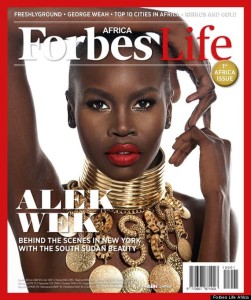
Lupita Nyong’o story of childhood teasing shows importance of positive Black images
 Celebrated actress Lupita Nyong’o who received an Oscar nomination for her role in the film “12 Years A Slave” revealed she experienced trauma as a child because of her skin color and wished she had lighter skin because of the teasing she received from other children. Nyong’o spent most of her childhood in middle class communities in Kenya.
Celebrated actress Lupita Nyong’o who received an Oscar nomination for her role in the film “12 Years A Slave” revealed she experienced trauma as a child because of her skin color and wished she had lighter skin because of the teasing she received from other children. Nyong’o spent most of her childhood in middle class communities in Kenya.
Nyong’o recently told an audience at the Essence magazine’s seventh annual Women in Hollywood luncheon about the abuse.
“I got teased and taunted about my skin; my one prayer to God was that I would wake up lighter skinned. The morning would come and I would be so excited about seeing my new skin that I would refuse to look down at myself until I was in front of the mirror because I wanted to see my face first. Every day I would feel the disappointment of being just as dark as the day before.”
Unfortunately, this is not a unique experience and the light skin/dark skin issue has been one that has plagued African descendant people all over the world for hundreds of years. The root of the problem can be attributed to racism and white supremacy and the false beauty standards that are not just promoted in the United States but all over the world where the people have access to western television programming.

An excellent book to read on the subject of racism in media and how it creates a false beauty standard is “The Beauty Con Game” by Umoja.
Nyong’o was not the only victim in her story of childhood teasing but those children who teased her, assuming they were non-white children of African descent, were victims as well because they had been taught to value white/light skin over black skin. Those children and perhaps their parents were all infected with the white supremacy virus, which is a mental disease that afflicts perhaps billions of victims.
It was not until Nyong’o was exposed to a dark complexion super model from Sudan that she began to appreciate her skin’s natural beauty.

“She was dark as night and was in all the magazines and on runways,” Nyong’o said of super model Alek Wek. “My complexion had always been an obstacle to overcome. I couldn’t believe that people were embracing a woman who looked so much like me as beautiful. It was perplexing and I wanted to reject it because I had begun to enjoy the seduction of inadequacy. But a flower couldn’t help but bloom inside of me.” – Lupita Nyong’o
While white supremacy media was undoubtedly the delivery system that infected her childhood tormentors, it was through media, images of a beautiful black supermodel gracing the runways and magazine covers was the cure for Nyong’o self-hatred. Her story is important and should be one that black parents discuss with their black children to make sure they are not hating themselves or others because of exposure to the false beauty standards of white supremacy media.
“I hope that my presence on your screens and in the magazines may lead you, young girl, on a similar journey. That you will feel the validation of your external beauty but also get to the deeper business of being beautiful inside. “There is no shame in Black beauty.” – Lupita Nyong’o
Related Content:
Being black is not a sin. Don’t mind those people teasing you for being black. You are beautiful, we are all beautiful because God created us in his own image.